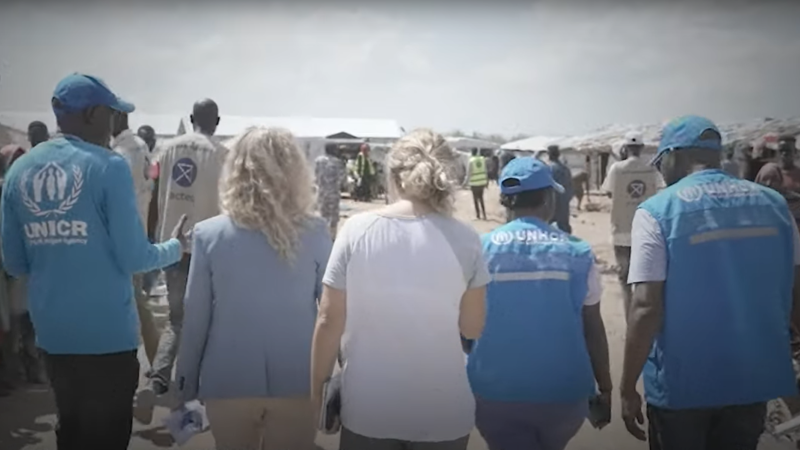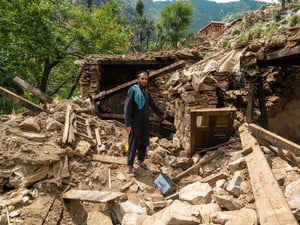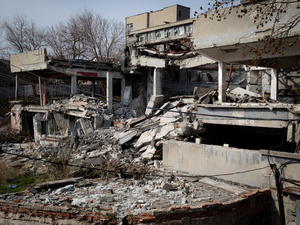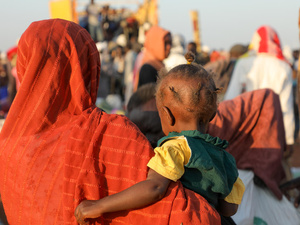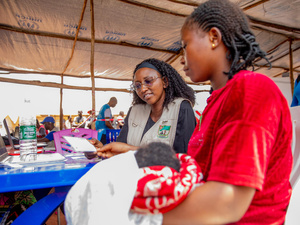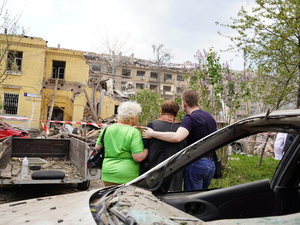Emergency preparedness
Emergency preparedness

Relief items are distributed to newly arrived Sudanese refugees at a site in Chad's Ouaddaï region.
Emergency preparedness is vital for UNHCR to be able to respond quickly and reliably to forced displacement crises. By being prepared, we can start saving lives long before the next crisis begins to unfold.
Our teams constantly monitor global developments, including political unrest, conflict and climate-related threats. We evaluate situations that could cause displacement and assess when and where an emergency is likely to occur.
In the event of a likely emergency, our teams on the ground develop contingency plans, pre-position life-saving supplies, and prepare to scale up operations to meet a sudden influx of displaced people.
To help us prepare and respond rapidly, UNHCR has developed a policy and tools that guide our response to emergencies. Learn more about UNHCR's preparedness policy and tools:
Policy on Emergency Preparedness and Response
The UNHCR Policy on Emergency Preparedness and Response outlines the steps staff should take to prepare for an imminent crisis. The policy aims to ensure a consistent response to emergencies while allowing the flexibility to adjust to the specific circumstances of each crisis.
Text and media 7 - Copy
View the policy: UNHCR Policy on Emergency Preparedness and Response (pdf)
Emergency declarations
UNHCR's policy on emergency preparedness and response details when UNHCR will issue an emergency declaration.
Emergencies are categorized as either Level 1, Level 2 or Level 3, depending on the size, complexity, and our capacity to respond effectively. An emergency declaration activates internal protocols that mobilize further support and resources.
In 2024, UNHCR responded to 43 active emergency declarations across 25 countries. Read more about emergency declarations on the Emergencies page.
Emergency Handbook
The UNHCR Emergency Handbook provides practical guidance for humanitarians responding to an emergency. It outlines best practices on key protection topics, such as shelter and housing, community-based protection and the Refugee Coordination Model, among others. It is designed to share lessons learned and build the skills and knowledge of UNHCR staff as well as the wider humanitarian sector.
First published in 1982 as a printed book and digitized in 2015, the Emergency Handbook is available in all six official UN languages.
Watch the video: History of the Emergency Handbook
Emergency deployments
When there is a surge in humanitarian needs during emergency situations, UNHCR has arrangements in place to quickly deploy experts to the field. This includes our Emergency Response Team roster: a pool of existing UNHCR personnel with a range of specialist expertise, who are on standby around the world to deploy to an emergency within 72 hours. UNHCR also maintains standby agreements with government agencies, NGOs and private sector organizations, whose specific expertise and capacity complement UNHCR's internal emergency and surge capacity to respond to humanitarian crises.
To ensure staff are ready to jump into action, UNHCR conducts a long-running Workshop on Emergency Management, which includes self-study, an online training and discussion component and a field-based, hands-on workshop. The intensive and demanding course helps prepare participants for emergency deployments focusing on three areas of emergency management: managing yourself, managing relationships, and managing your operational role through all phases of the deployment.
Text and media 12
UNHCR Regional Centre for Emergency Preparedness – eCentre
The eCentre is a dedicated platform for building emergency preparedness capacities targeting government partners and NGOs throughout Asia and the Pacific and in Africa.
The eCentre's main focus is to strengthen the operational capacity of UNHCR partners and other actors in emergency preparedness and response, and to foster collaboration in the context of humanitarian emergencies.
Learn more about eCentre Africa
Learn more about eCentre Asia and the Pacific


